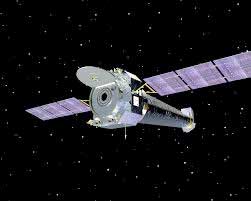 A radically different type of X-ray space telescope has been designed by scientists in Sweden, using advanced optic techniques that were originally developed in medical imaging research.
A radically different type of X-ray space telescope has been designed by scientists in Sweden, using advanced optic techniques that were originally developed in medical imaging research.
Jun 18th, 2019
Read more
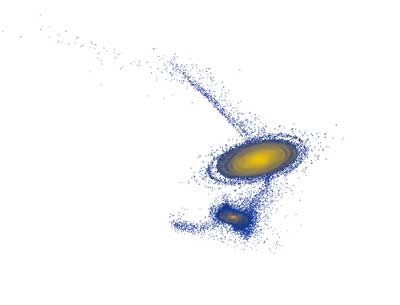 The newly-discovered dark dwarf galaxy Antlia 2's collision with the Milky Way may be responsible for our galaxy's characteristic ripples in its outer disc.
The newly-discovered dark dwarf galaxy Antlia 2's collision with the Milky Way may be responsible for our galaxy's characteristic ripples in its outer disc.
Jun 12th, 2019
Read more
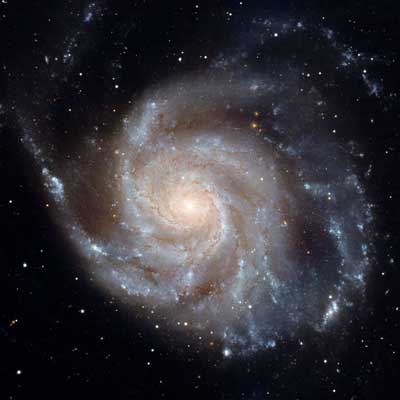 Hundreds of thousands of volunteers have helped to overturn almost a century of galaxy classification, in a new study using data from the longstanding Galaxy Zoo project.
Hundreds of thousands of volunteers have helped to overturn almost a century of galaxy classification, in a new study using data from the longstanding Galaxy Zoo project.
Jun 11th, 2019
Read more
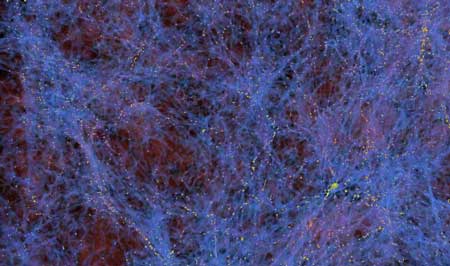 Two theoretical physicists have a new candidate for dark matter and a possible way to detect it.
Two theoretical physicists have a new candidate for dark matter and a possible way to detect it.
Jun 10th, 2019
Read more
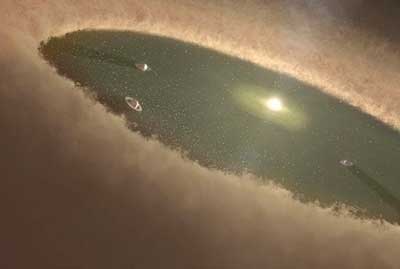 Spectrographic analysis yields empirical benchmark for newborn 'hot Jupiter'.
Spectrographic analysis yields empirical benchmark for newborn 'hot Jupiter'.
Jun 10th, 2019
Read more
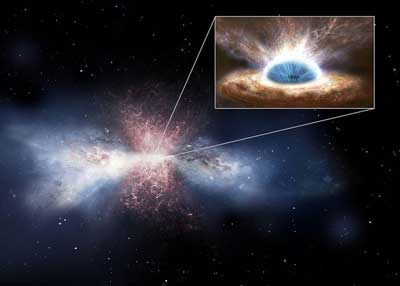 This is the first publication based entirely on data obtained with EMIR, an instrument, which analyses the infrared light gathered by the Gran Telescopio Canarias.
This is the first publication based entirely on data obtained with EMIR, an instrument, which analyses the infrared light gathered by the Gran Telescopio Canarias.
Jun 7th, 2019
Read more
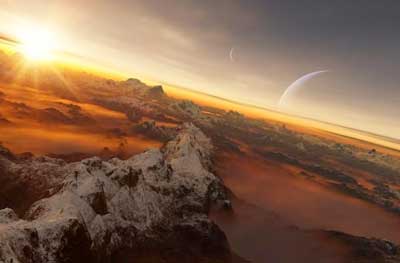 IAU100 NameExoWorlds gives every country in the world the opportunity to name an exoplanet and its host star.
IAU100 NameExoWorlds gives every country in the world the opportunity to name an exoplanet and its host star.
Jun 6th, 2019
Read more
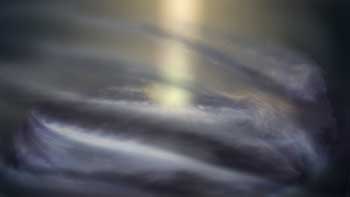 New ALMA observations reveal a never-before-seen disk of cool, interstellar gas wrapped around the supermassive black hole at the center of the Milky Way. This nebulous disk gives astronomers new insights into the workings of accretion.
New ALMA observations reveal a never-before-seen disk of cool, interstellar gas wrapped around the supermassive black hole at the center of the Milky Way. This nebulous disk gives astronomers new insights into the workings of accretion.
Jun 5th, 2019
Read more
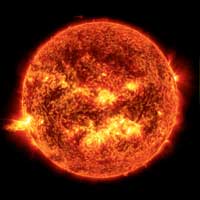 It's one of the greatest and longest-running mysteries surrounding, quite literally, our sun--why is its outer atmosphere hotter than its fiery surface? Researchers believe they have the answer, and hope to prove it with help from NASA's Parker Solar Probe.
It's one of the greatest and longest-running mysteries surrounding, quite literally, our sun--why is its outer atmosphere hotter than its fiery surface? Researchers believe they have the answer, and hope to prove it with help from NASA's Parker Solar Probe.
Jun 4th, 2019
Read more
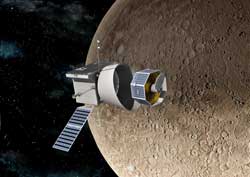 Researchers have only recently started to investigate in detail the electron-induced direct and indirect ionization effects, and their potentially destructive effects for space missions and experiments
Researchers have only recently started to investigate in detail the electron-induced direct and indirect ionization effects, and their potentially destructive effects for space missions and experiments
Jun 3rd, 2019
Read more
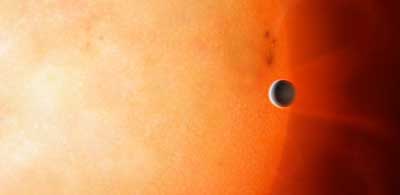 An international group of astronomers has identified a rogue planet orbiting its star in the so-called Neptunian Desert.
An international group of astronomers has identified a rogue planet orbiting its star in the so-called Neptunian Desert.
May 29th, 2019
Read more
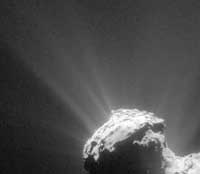 Researchers discover a process that turns carbon dioxide into molecular oxygen.
Researchers discover a process that turns carbon dioxide into molecular oxygen.
May 28th, 2019
Read more
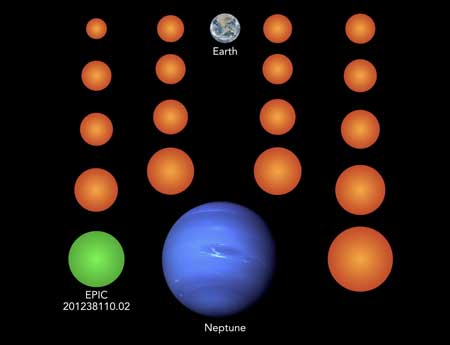 Astronomers have used a new method to find small exoplanets, which previous surveys had overlooked.
Astronomers have used a new method to find small exoplanets, which previous surveys had overlooked.
May 22nd, 2019
Read more
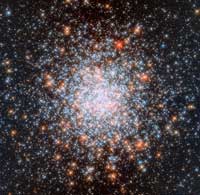 Young stars heat molecular clouds and drive hot interstellar gas bubbles throughout galaxies.
Young stars heat molecular clouds and drive hot interstellar gas bubbles throughout galaxies.
May 22nd, 2019
Read more
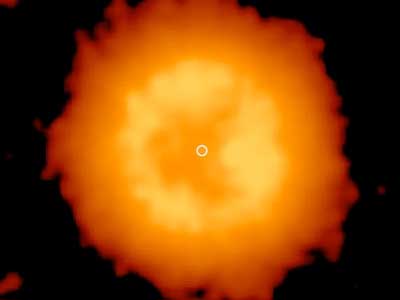 Astronomers have identified an unusual celestial object. It is most likely the product of the fusion of two stars that died a long time ago. After billions of years circling around each other these so-called white dwarfs merged and rose from the dead.
Astronomers have identified an unusual celestial object. It is most likely the product of the fusion of two stars that died a long time ago. After billions of years circling around each other these so-called white dwarfs merged and rose from the dead.
May 21st, 2019
Read more
 New method cuts through galaxies' messy emissions, provides clearer window into dark matter, dark energy.
New method cuts through galaxies' messy emissions, provides clearer window into dark matter, dark energy.
May 14th, 2019
Read more
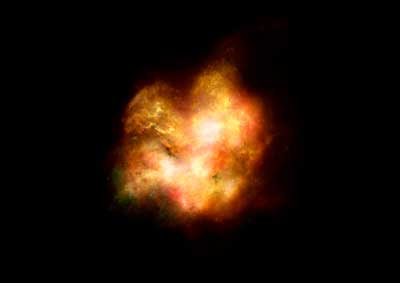 NASA's Spitzer Space Telescope has revealed that some of the Universe's earliest galaxies were brighter than expected. The excess light is a by-product of the galaxies releasing incredibly high amounts of ionising radiation.
NASA's Spitzer Space Telescope has revealed that some of the Universe's earliest galaxies were brighter than expected. The excess light is a by-product of the galaxies releasing incredibly high amounts of ionising radiation.
May 9th, 2019
Read more
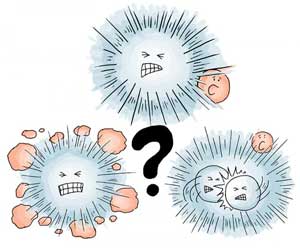 Although hydrogen is the most-abundant element in the universe, it is almost never seen in Type Ia supernova explosions, except this one.
Although hydrogen is the most-abundant element in the universe, it is almost never seen in Type Ia supernova explosions, except this one.
May 7th, 2019
Read more
 A radically different type of X-ray space telescope has been designed by scientists in Sweden, using advanced optic techniques that were originally developed in medical imaging research.
A radically different type of X-ray space telescope has been designed by scientists in Sweden, using advanced optic techniques that were originally developed in medical imaging research.
 Subscribe to our Space Exploration News feed
Subscribe to our Space Exploration News feed















